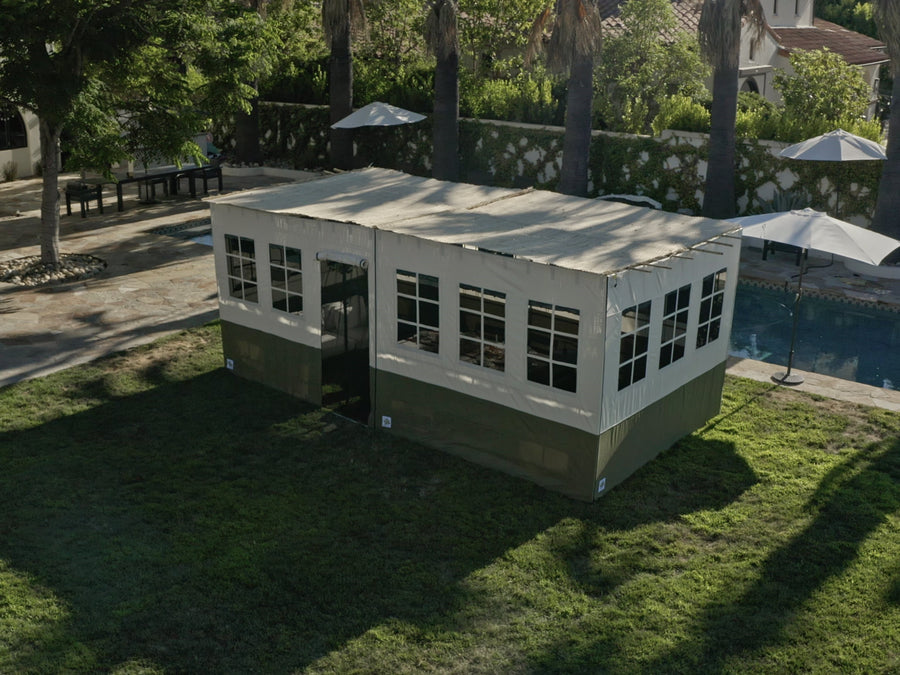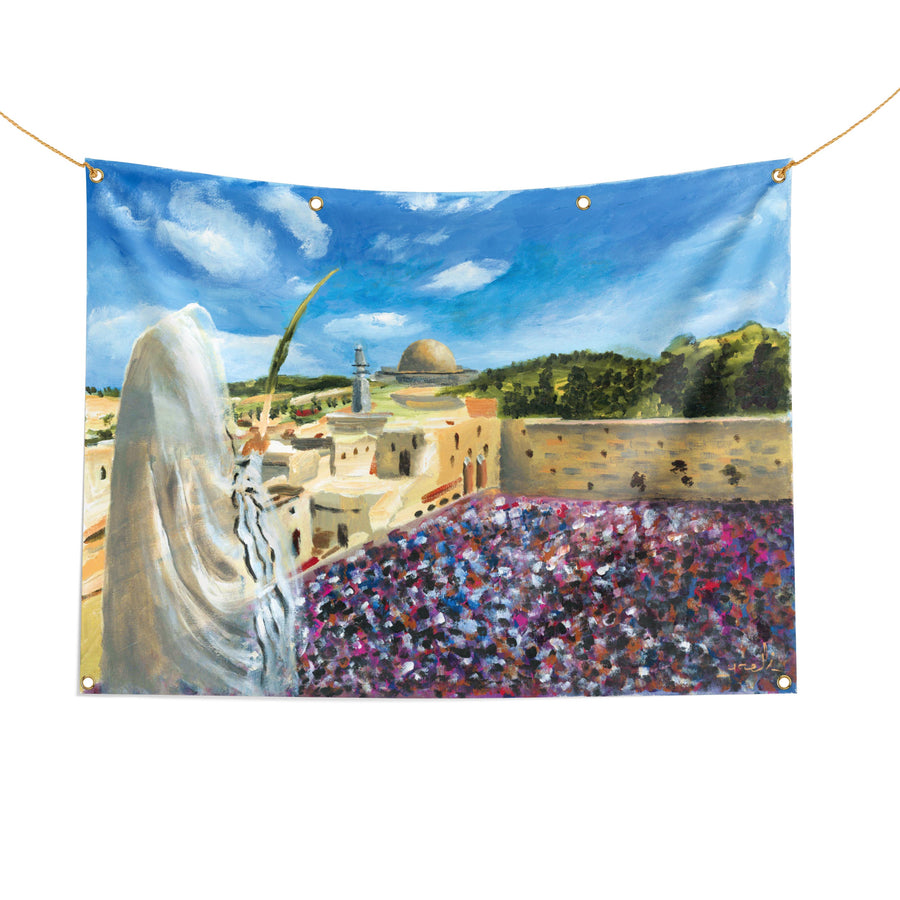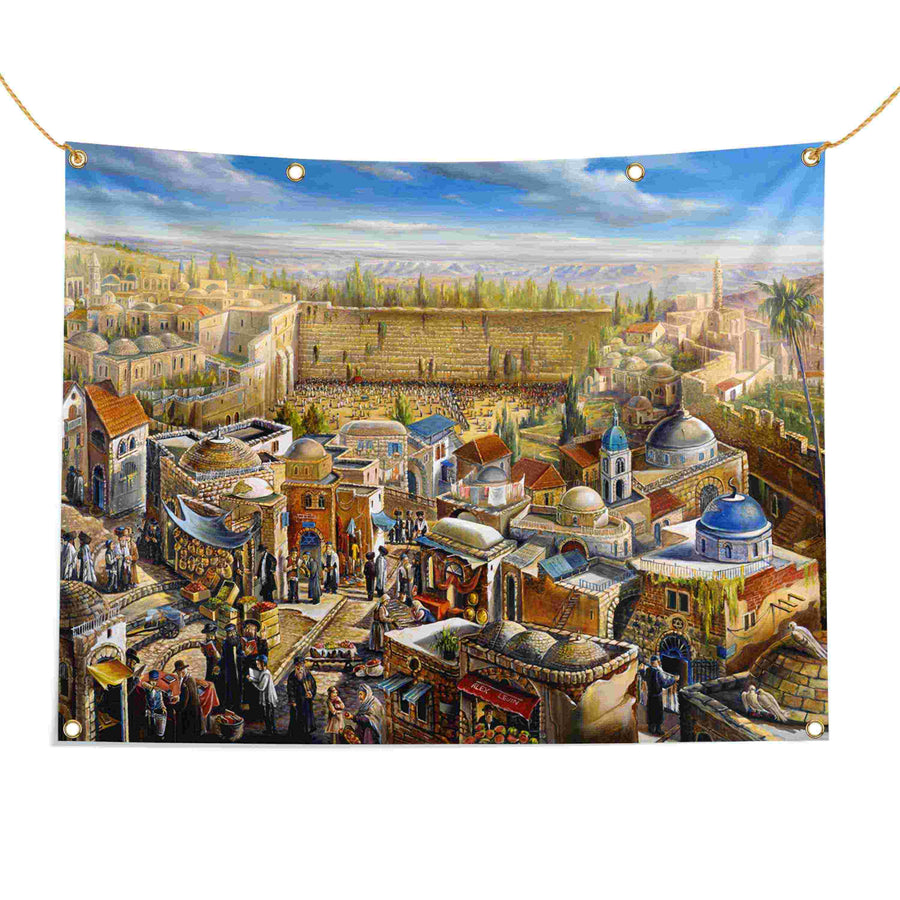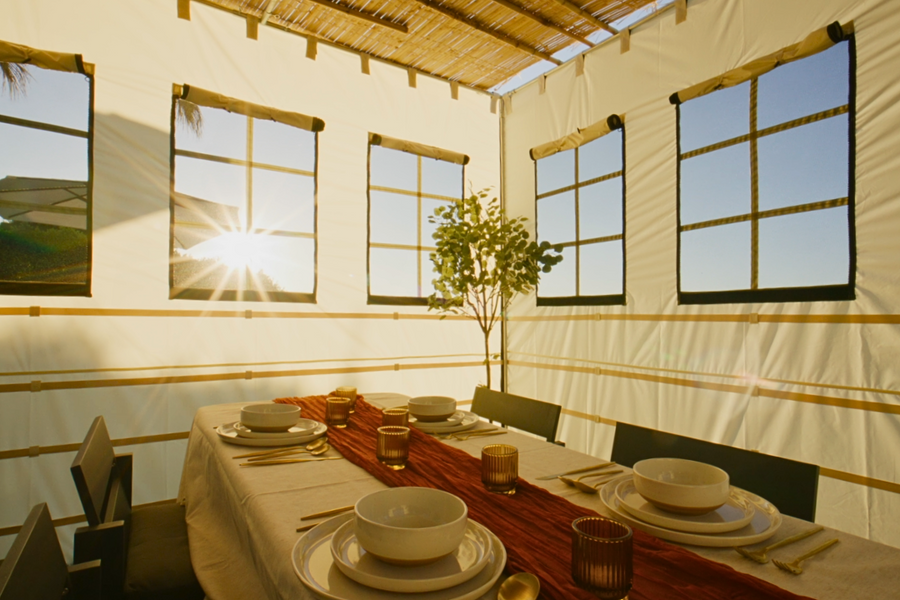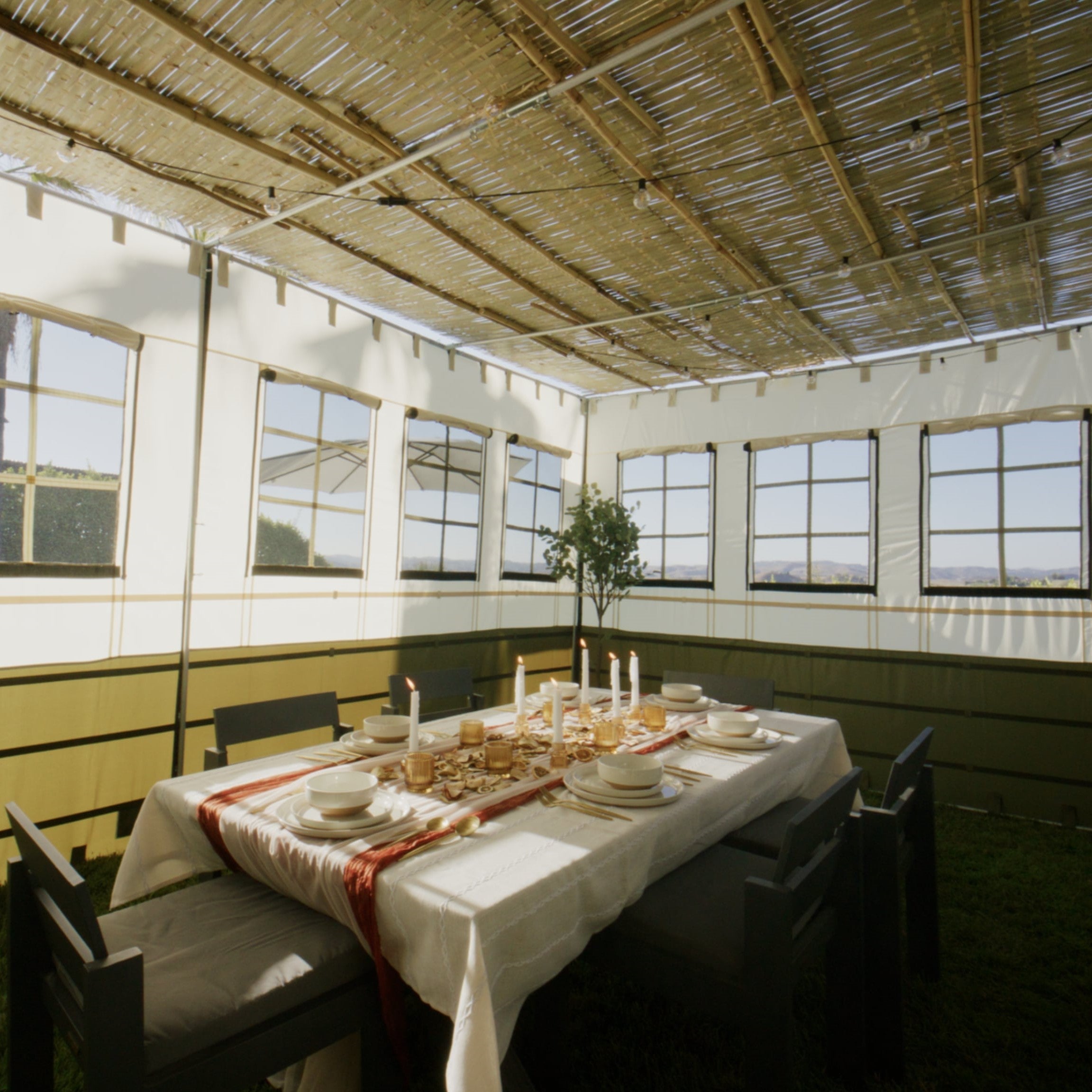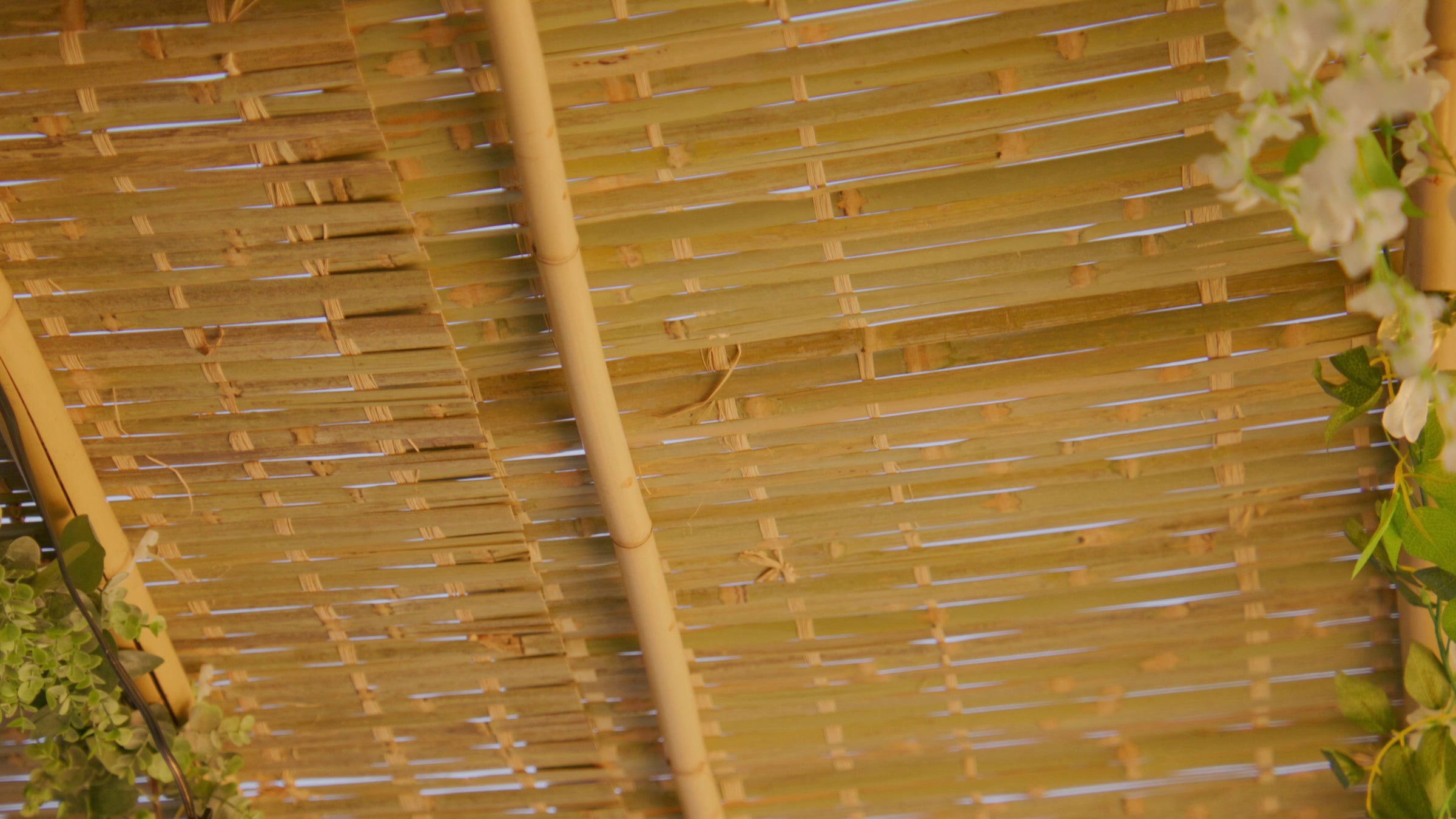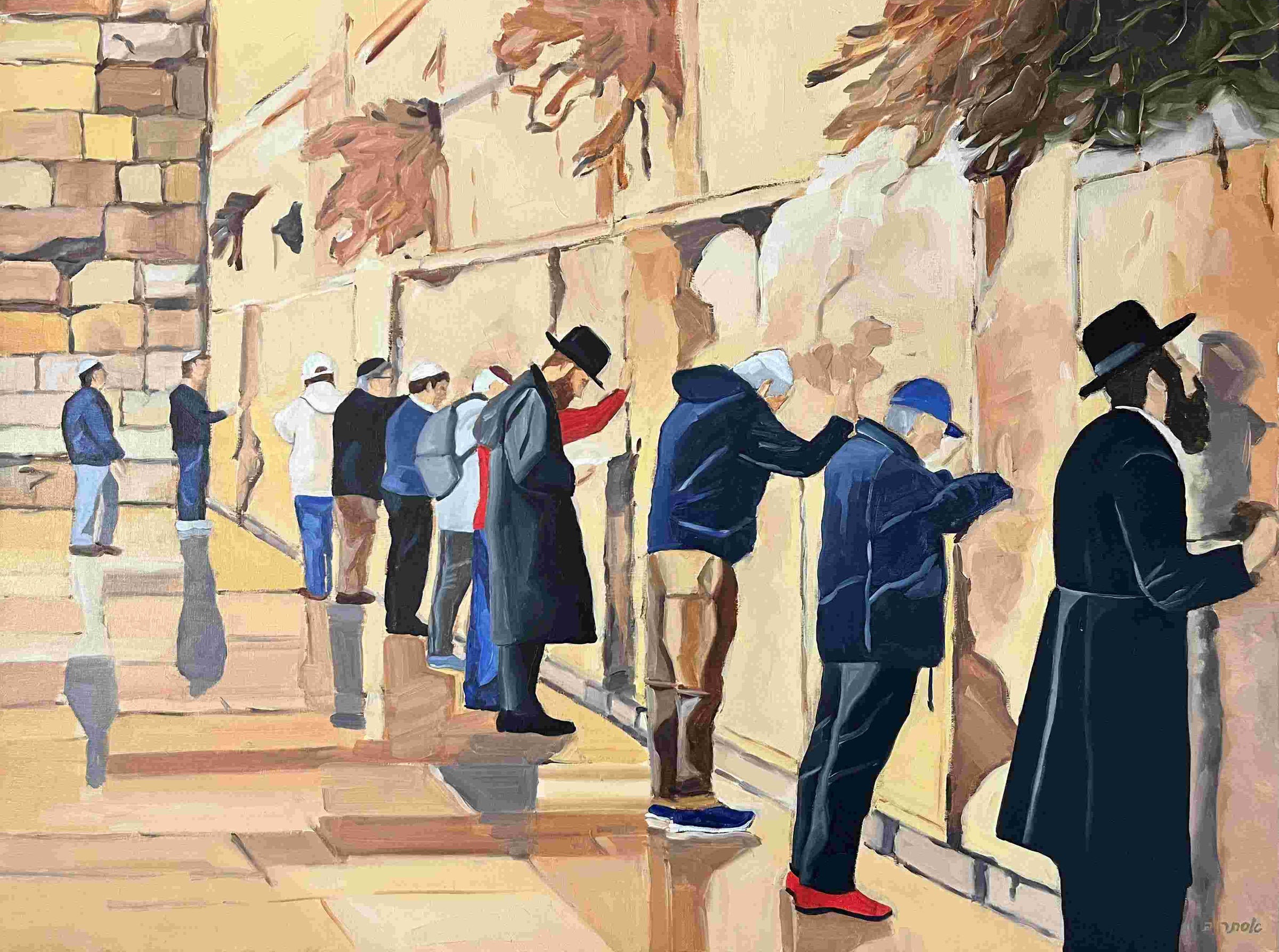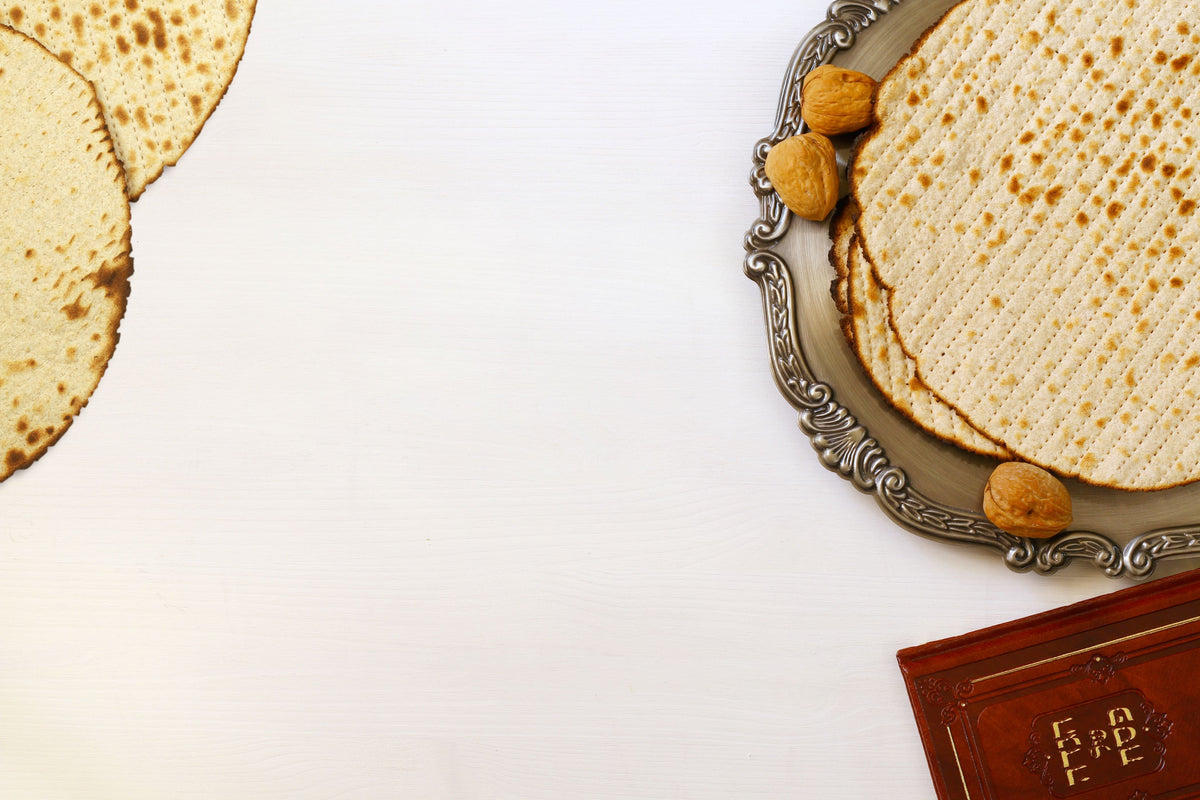

Table of content
Passover is fast approaching, and in 2025, it will be celebrated from Saturday evening, April 12, through Sunday evening, April 20 . That means it's time to get your shopping lists ready, scour your house for stray crumbs of chametz, and mentally prepare for the Great Matzah Crunch of 2025.
The first Seder will kick off the festivities on April 12, after nightfall , and for those outside of Israel, the second Seder follows on April 13, after nightfall . If you’ve been wondering whether the extra Seder night is just a ploy to double the gefilte fish sales, rest assured it’s a long-standing tradition tied to how Jewish holidays were historically observed in the diaspora (more on that in our article on why diaspora Jews celebrate two days of Yom Tov ).
But don’t let the dates fool you into thinking Passover is just about those two epic nights of food, family, and the Haggadah shuffle. There’s a full week (eight days outside Israel) packed with meaning, rituals, and, yes, plenty of matzah. So, let’s dive into some fun facts, quirky details, and even debunk a few myths about this beloved holiday.
Passover Myths Debunked: The Truth Behind the Traditions
1. Yep, There Are Actually Two Seder Nights
If you’re in the diaspora, Passover doubles down with two Seders. Why? Back in the day, the Jewish calendar wasn’t a "set it and forget it" situation. People relied on witnesses spotting the new moon to determine the start of each month, and word of the festival’s start took time to travel. To cover their bases, communities outside Israel added an extra day to holidays. Even with today’s fixed calendar, this tradition lives on. Think of it as a way to make sure no one misses out on the matzah marathons.
2. The Timing of the Seder Really Does Matter
We know it’s tempting to jump straight into the brisket, but timing is everything . The Seder must begin after nightfall, as that’s when the mitzvah officially starts. So check your local halachic times – because no one wants to hear that their karpas dipping didn’t count.
3. Newsflash: There Is Good Wine Available for the Four Cups!
For years, Passover wine was synonymous with syrupy-sweet Manischewitz. But hold onto your kiddush cups, because the kosher wine industry has blossomed . Today, you can sip on everything from a robust cabernet to a sparkling moscato. So, if you’re still serving "the bottle from last year’s clearance sale," maybe consider upgrading your four cups experience.
4. You Don’t Need to Read Hebrew (But It’s a Nice Bonus)
Can’t read Hebrew? No problem. The mitzvah of the Seder is to tell the story of the Exodus in a way everyone at the table can understand. Whether that’s English, Spanish, or interpretive dance (okay, maybe not the last one), the goal is connection and meaning.
5. The Four Questions Actually Need Answers
The Four Questions aren’t just a cute tradition to get kids involved; they’re meant to spark a dialogue. Parents, don’t breeze past them. Instead, engage the kids, answer their questions, and keep the night interactive. After all, the Seder is about passing down the story of freedom.
6. The Seder Can Actually Be Fun
The Seder doesn’t have to feel like a marathon of ancient texts. Incorporate songs, props, or even a plague-themed charades game. A fun Seder keeps everyone engaged – and might even make Elijah stick around for dessert.
7. Passover and Pesach Are the Same...Sort Of
Passover is the English term for the Hebrew Pesach, but there’s a twist. Pesach technically refers to the sacrificial lamb offering made on the 14th of Nissan, while Chag HaMatzot (Festival of Unleavened Bread) is the name for the seven-day holiday. For a few overlapping hours on the first night, the two coincide – but they’re distinct in origin.
8. “Gluten-Free” and “Kosher for Passover” Aren’t the Same
While matzah gets a pass as "the original gluten-free cracker," don’t confuse FDA labels with halachic rules. Many gluten-free products aren’t kosher for Passover, and vice versa. Always look for that special kosher-for-Passover certification to avoid any holiday faux pas.
9. Cleaning the House Isn’t Enough
Passover prep isn’t just spring cleaning – it’s a mission to banish chametz (leavened products). And no, hiding it in the garage doesn’t count. Jewish law requires selling chametz to a non-Jew for the duration of the holiday. Thankfully, your local rabbi has a handy form for that.
10. There’s More to Passover Than the Seders
While the Seders get most of the spotlight, Passover spans eight days (seven in Israel). The latter days include Shvii shel Pesach, commemorating the splitting of the Sea of Reeds, and Acharon shel Pesach, which focuses on themes of redemption. If you’re in the diaspora, the last day even comes with a bonus round of four cups at Moshiach’s Meal.
11. Matzah: More Than “Poor Man’s Bread”
Matzah is often called the "bread of affliction," but it’s also a symbol of faith and healing. Eating it connects us to the simplicity and purity of relying on G-d’s providence. So next time you crunch into a piece, think of it as soul food.
A Few Tips for a Smooth Passover 2025
Start Early : Pesach cleaning might feel overwhelming, so break it into manageable chunks. Think of it as a spiritual Marie Kondo moment – except this time, the goal is to banish crumbs, not spark joy.
Upgrade Your Matzah : Not all matzah is created equal. Handmade shmurah matzah offers a taste of tradition, while store-bought varieties keep things practical. Either way, stock up early before the shelves are bare.
Plan Your Menus : From kugels to brisket to creative uses for leftover matzah, a little planning goes a long way in keeping everyone well-fed (and sane).
Relax and Enjoy : Passover is about freedom, not stress. Focus on the joy of being with retelling our incredible story, and maybe sneaking a nap between meals.
As Passover 2025 approaches, whether you're debating which wine will make the Four Cups less of a challenge, or simply trying to remember how many pieces of Matzah you can sneak before your stomach gives up on you, rest assured that you’re not alone. Just remember this festival connects us to our past, celebrates our present, and inspires hope for the future!
Chag Sameach!
